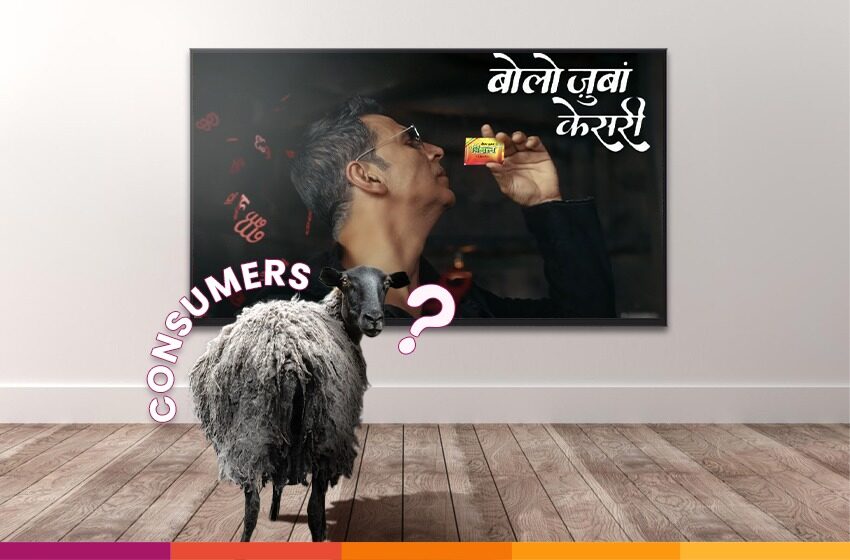
Consumers wake up! Force your brand and celebrities to be ethical!
At BrandGuff, we have become a sort of a clockwork repeatedly talking about the screwed up business culture, lack of proper regulatory bodies and an unspoken unholy alliance between the government bodies, unions and brands. What we have not talked about yet, is the lack of consumer awareness in Nepal.
For sure, we can keep regurgitating our frustrations when it comes to the above mentioned issues, but as long as the consumers are not aware of their rights and do not push the brands, and by default media, to be mindful, we won’t change our act. Don’t believe the power you have over us? Just look at the recent Pan Masala controversy regarding an ad that featured Bollywood bigbies: Akshay Kumar, Shahrukh Khan and Ajay Devgn.
Surrogate marketing is completely legal in both India and Nepal. However, in Nepal, tobacco and alcohol industry tend to be completely apathetic to the country’s rule and existing restrictions. Even so called leading national dailies like Kantipur has been posting a beer’s ad as a roadblock ad in the last few days. You expect your news to be unbiased?
When a leading newspaper like Kantipur is reliant on ad revenue from an alcoholic beverage company, do you expect to get an honest news from them? Do you remember the time when Kantipur publication went on a crusade against Kul Man Ghishing? May be , just may be( #cough cough and lot of coughs#), it had something to do with the fact that a big part of Kantipur’s ad revenue used to come from inverter companies back then!!
Paan Masala controversy
Having made our stance clear, let’s talk about the case at hand. 3 big Bollywood stars collaborated together to endorse a supposedly ‘benign’ tobacco free cardamom product. Akshay Kumar, particularly, of late has capitalized the nationalist wave that has gripped India. You have seen him teaching Indians to use Toilets to sanitary pads through his films.
Having built a personal brand as an Indian patriot, his fanbase were, of course, depressed by Akshay’s decision to embed himself with a Tobacco brand. Notwithstanding the fact that his endorsement of the product itself was totally legal under surrogate marketing, Akshay Kumar, after facing massive backlash from his fanbase, ultimately decided to apologize and recuse himself from further promotion of any brand that engages in tobacco and alcohol industry. Similarly, when Shahrukh Khan’s son was embroiled in the drug controversy, an education brand Byzus stopped airing advertisements featuring the superstar to avoid consumer backlash.
Indian consumers vs Nepali consumers
So why is it that Indian consumers are aware of their rights and hold brands and ambassadors accountable while Nepalese consumers don’t? The reason harks back to a very popular program initiated by the Indian government in 2005 called ‘Jago Grahak Jago’. Under this program, the Indian government created consumer awareness campaigns through social media, TV channels and print media. Additionally, the government setup hotline numbers for taking in consumer complaints.
While Nepal’s laws on paper protect consumer rights, government seems to be least interested in making its citizens aware. As a by product, Indian consumers have become a collectively aware population. In Nepal, however, we are decentralized, lack discipline and totally oblivious to the power we hold.
Need for consumer awareness
Consumers make brands and media houses, and not the other way around! If a collectively aware population can make a Bollywood superstar step back from what is otherwise perfectly legal surrogate marketing, if Nepalese consumers become aware and collectivize, we do not have to wait for government to reign in irresponsible media houses and unethical business practices. Collective consumer base will be the best regulatory mechanism that brands and media are in dire need of today in Nepal!
Consumers, understand that you are not sheeps that need to be fed what is right/wrong by media like us or brands. You have your own agency! USE IT!




